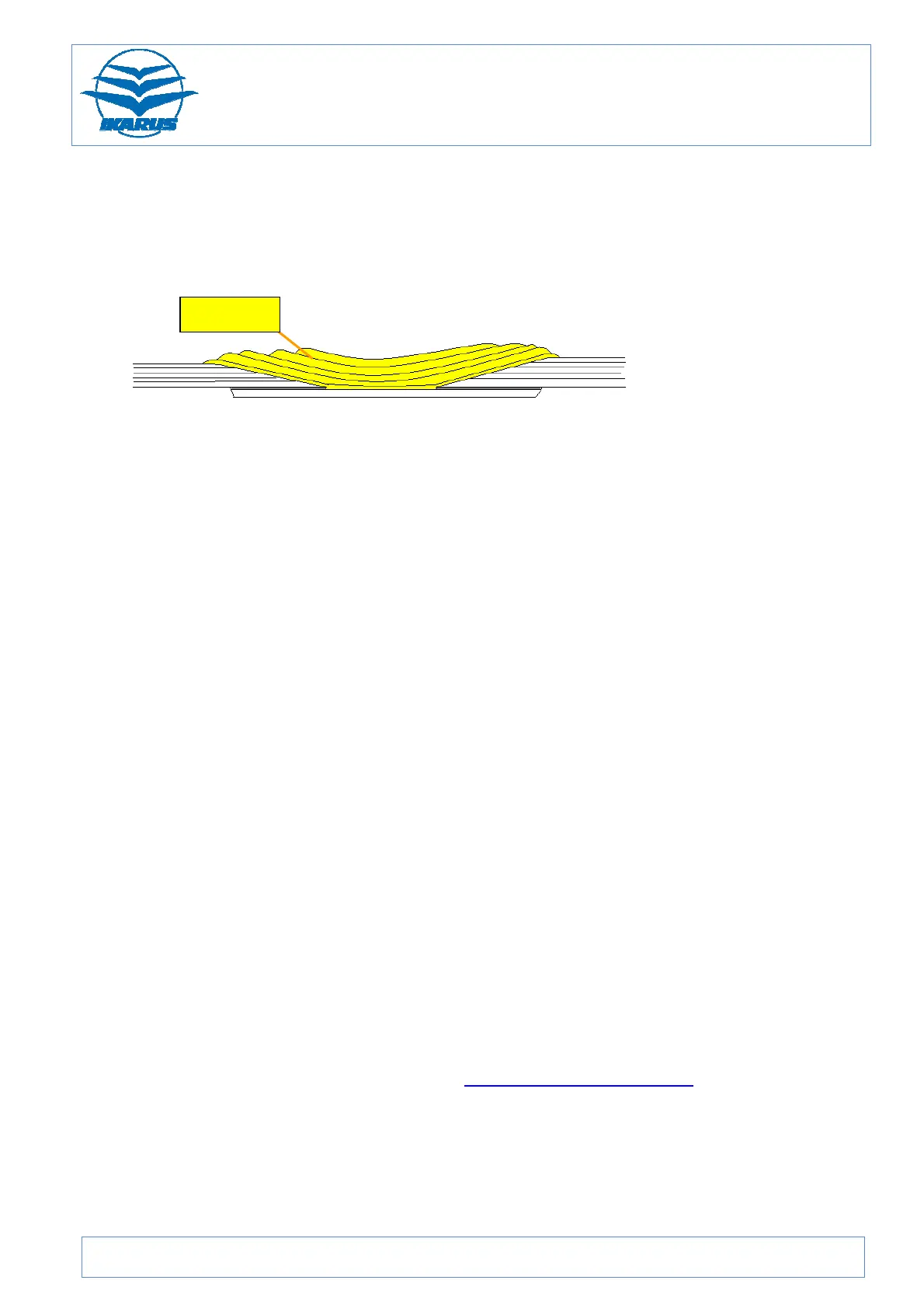COMCO IKARUS
Maintenance Manual C42 Series
MaintenanceManual C42-
Series_Issue_VII_18.02.2014.doc
Revison No.:1 93 from 107
The next step is the repair lay-up. Glass-fibre fabric sections are cut, the top layers
being smaller than the lower layers. The fibre direction of all the layers is the same as
that of the lowest layer. The fabric layers should overlap the repair area by approx.
30-50 mm. The number of layers required depends upon the kind of repair material
used and the scale of the damage.
Figure 87: New laminate lay-up
The repaired area is then covered with resin and the largest fabric layer placed in
fibre direction on the undermost fabric layer. Using a brush the layer is then
completely soaked with resin. Further fabric layers are applied and completely
soaked in the same manner.
Usually, no resin must be applied to the final fabric layer. Dabbing with a brush
ensures that sufficient resin is absorbed from the lower layers. Finally, a PE foil is
placed over the repaired area and the laminate is allowed to harden. The hardening
process can be assisted through uniform heat application (approx. 60°C) using, for
example, a heating foil. Once the hardening process has been completed (standing
fibres can be broken off), the foil is removed and the repair area sandpapered (grain
180) to ensure a smooth transition at the edges. The repair area should be a few
tenths of a millimetre deeper than the surrounding area. If the area is too deep, it can
be filled.
The repair area can now be varnished.
Original coating: polyester gel coat (white).
5.6 Electrical repairs
Faulty electrical components may only be replaced by new original spare parts which
may be ordered from an IFC / ISC or directly from COMCO IKARUS., Circuit
diagrams are to be found in the appendix to this manual.
Faults must be reported to COMCO IKARUS.
5.7 Ikarus Flight Centres
A list of IFCs is to be found on our website http://www.comco-ikarus.de
new lay-up
